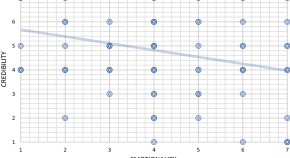Collection
Folk Psychology: Pluralistic Approaches
- Submission status
- Closed
Folk psychology refers to the way that ordinary people come to understand and navigate the social world around them. Contemporary philosophical discussions of folk psychology have focused on how people predict and explain behavior by employing concepts of a limited subset of propositionally structured mental states – namely, beliefs and desires. Pluralistic folk psychology grew out of increasing uneasiness with the narrow terms of these discussions. As a research program, pluralistic folk psychology is committed to the idea that social understanding and interaction is a complex phenomenon that involves a diverse array of psychological processes, only some of which involve propositional attitude attribution, prediction, or explanation. True to its name, however, there is no particular model of social cognition that all pluralists are committed to. Some pluralists aim to replace standard theories of folk psychology like the theory-theory and the simulation theory; others pluralists see themselves as working within and enhancing these approaches. Still others have challenged our understanding of what folk psychology is really for.
The papers in this collection exemplify this broad array of pluralist views. The introduction by Andrews, Spaulding, and Westra reviews the origins and basic theoretical tenets of the framework of pluralistic folk psychology. The ten papers in the collection fall into three themes: (1) Folk-psychological strategies beyond propositional attitude attribution; (2) Enculturation and regulative folk psychology; and (3) Defenses of pluralism. The four papers in the first cluster – by Curry, Boisserie-Lacroix and Inchingolo, Díaz and Almagro, and Westra – can be read as developing the pluralistic thesis that folk psychology is supported by a wide range of strategies. The four papers in the second cluster – by Lavelle, Ilgaz and Allen, McGeer, and Zawidzki – build upon the pluralistic insight that the goals of folk psychology are often regulative, rather than predictive and explanatory, and explore the role of cultural and developmental factors in shaping the regulative process. The two papers in the last cluster – by Ghijsen and Fiebich – build upon the pluralist research program by engaging with its critics and offering proposals about how to understand the pluralist framework as a whole.
Editors
-
Kristin Andrews
Kristin Andrews is York Research Chair in Animal Minds and Professor of Philosophy at York University (Toronto). She is on the board of directors of the Borneo Orangutan Society Canada, a member of the College of the Royal Society of Canada, and the author of several books on social minds, animal minds, and ethics.
-
Shannon Spaulding
Shannon Spaulding is an Associate Professor of Philosophy at Oklahoma State University. Her general philosophical interests are in cognitive science, philosophy of psychology, and philosophy of science.
-
Evan Westra
Evan Westra is an Assistant Professor in the Department of Philosophy at Purdue University. He works on a number of topics in the philosophy of cognitive science and moral psychology, especially those related to social cognition.
Articles (12 in this collection)
-
-
Enculturating folk psychologists
Authors
- Victoria McGeer
- Content type: Folk Psychology: Pluralistic Approaches
- Published: 01 July 2020
- Pages: 1039 - 1063
-
Street smarts
Authors
- Devin Sanchez Curry
- Content type: Folk Psychology: Pluralistic Approaches
- Published: 11 April 2020
- Pages: 161 - 180
-
Correction to: In defense of pluralist theory
Authors
- Anika Fiebich
- Content type: Correction
- Published: 07 March 2020
- Pages: 6835 - 6835
-
(Co-)Constructing a theory of mind: From language or through language?
Authors
- Hande Ilgaz
- Jedediah W. P. Allen
- Content type: Folk Psychology: Pluralistic Approaches
- Published: 19 February 2020
- Pages: 8463 - 8484
-
Folk personality psychology: mindreading and mindshaping in trait attribution
Authors
- Evan Westra
- Content type: Folk Psychology: Pluralistic Approaches
- Published: 03 February 2020
- Pages: 8213 - 8232
-
Empathy for a reason? From understanding agency to phenomenal insight
Authors
- Celine Boisserie-Lacroix
- Marco Inchingolo
- Content type: Folk Psychology: Pluralistic Approaches
- Published: 13 December 2019
- Pages: 7097 - 7118
-
In defense of pluralist theory
Authors
- Anika Fiebich
- Content type: Folk Psychology: Pluralistic Approaches
- Published: 02 December 2019
- Pages: 6815 - 6834
-
A new perspective on the relationship between metacognition and social cognition: metacognitive concepts as socio-cognitive tools
Authors
- Tadeusz W. Zawidzki
- Content type: Folk Psychology: Pluralistic Approaches
- Published: 15 November 2019
- Pages: 6573 - 6596
-
The impact of culture on mindreading
Authors
- Jane Suilin Lavelle
- Content type: Folk Psychology: Pluralistic Approaches
- Open Access
- Published: 14 November 2019
- Pages: 6351 - 6374
-
Traits, beliefs and dispositions in a pluralistic folk psychology
Authors
- Harmen Ghijsen
- Content type: Folk Psychology: Pluralistic Approaches
- Open Access
- Published: 22 October 2019
- Pages: 5395 - 5413
-
You are just being emotional! Testimonial injustice and folk-psychological attributions
Authors
- Rodrigo Díaz
- Manuel Almagro
- Content type: Folk Psychology: Pluralistic Approaches
- Published: 18 October 2019
- Pages: 5709 - 5730





